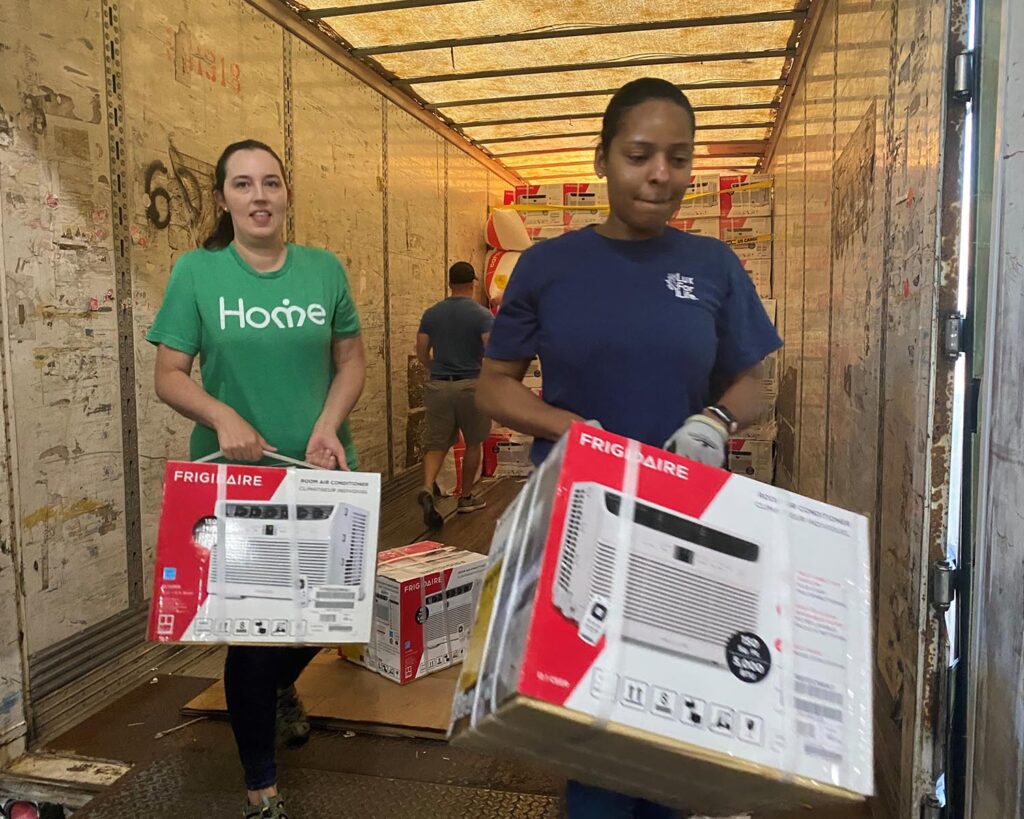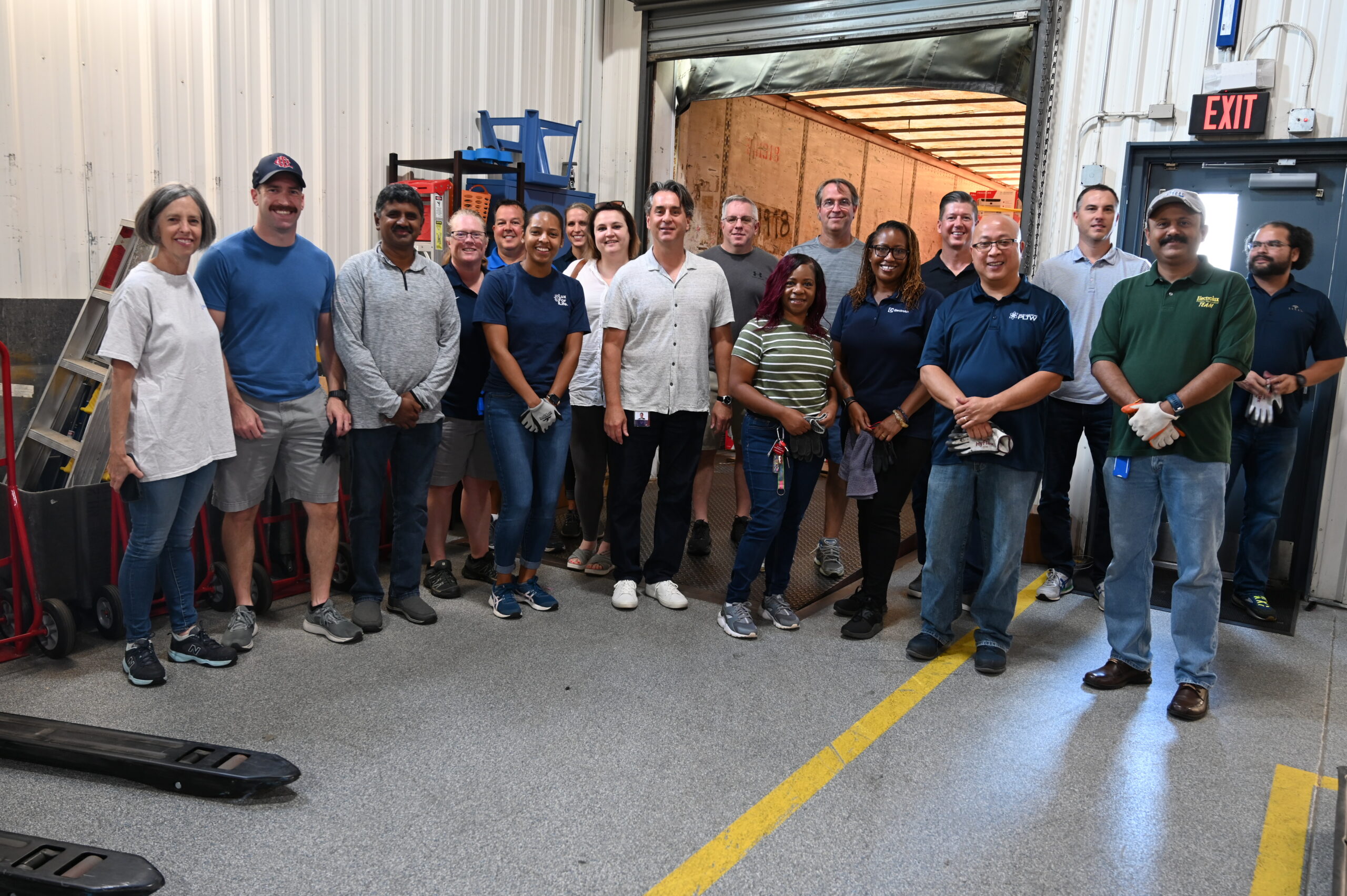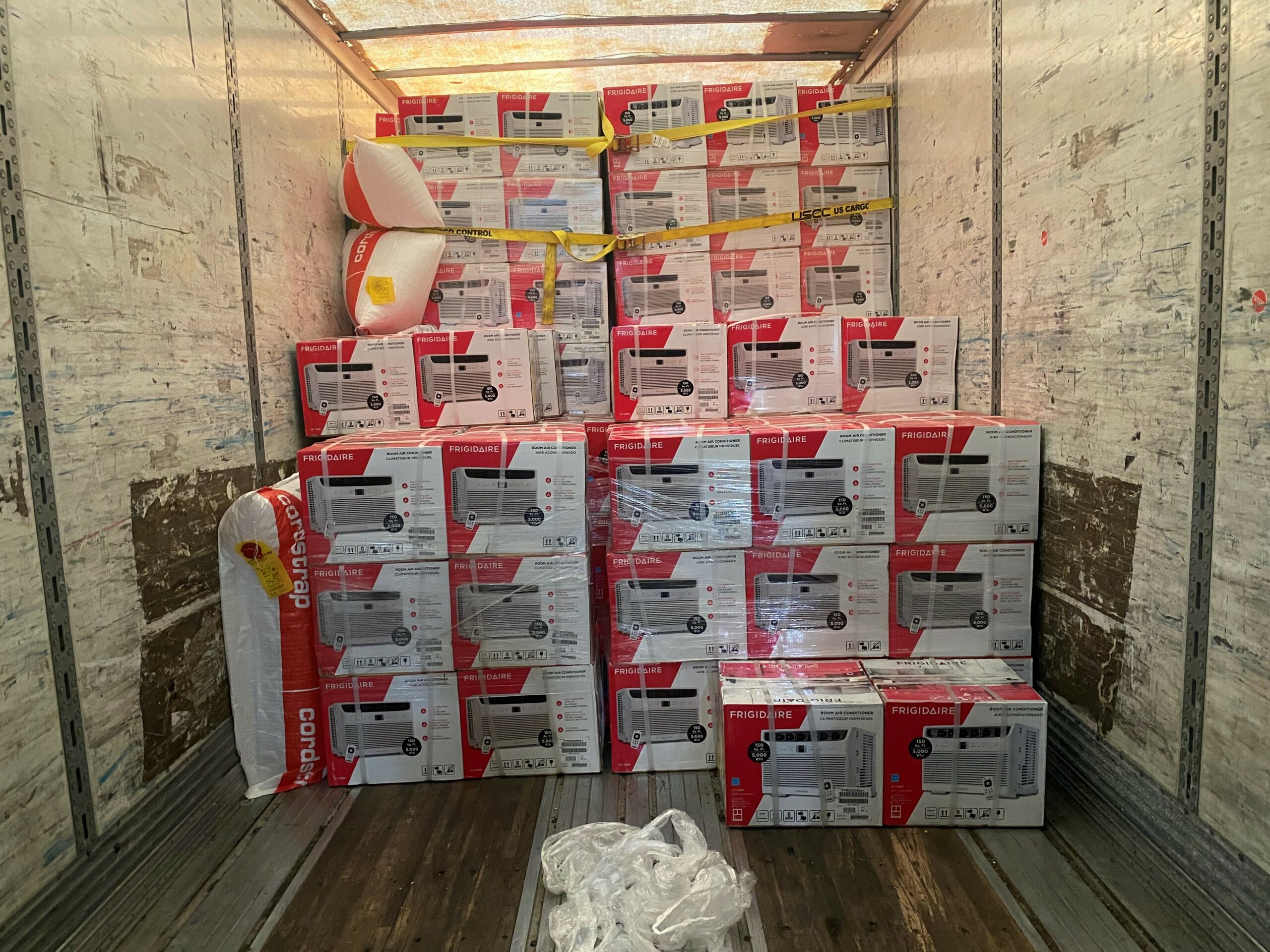If you’re a math and spatial-type person, ponder this: 750 Frigidaire air conditioners just about fill an 18-wheeler, stacked-top-to-bottom.
If you’re a speedster who aims for record-setting, then picture this: on a warm summer morning last week 25 volunteers from Electrolux’s North American headquarters in Charlotte unloaded all of those 750 Frigidaire air conditioners at a record pace at Crisis Assistance Ministry’s warehouse.
These brand-new units will be distributed to customers who have been referred by our partner agencies: families who are without central air, or even a window unit, as the summer continues to heat up.

Heat-related illnesses pose the highest risk to those who are elderly, anyone who has a pre-existing heart condition, and to pregnant women. Pre-mature births and stillbirths have been associated with extreme heat, according to NewScientist.com.
A 95-degree day might be an inconvenience if you’re just dashing from an air-conditioned car to an air-conditioned house or apartment. But for thousands of families in Charlotte-Mecklenburg, there is no central air or a suitable window unit to fight the heat in their homes or apartments. For those who rent, landlords sometimes ignore requests for heat relief.
It’s a situation that’s more likely to affect families served by Crisis Assistance Ministry. In fact, NPR found that in many major cities, “low-income neighborhoods are more likely to be hotter than their wealthier counterparts.” NPR’s analysis of 97 of the country’s largest cities showed that in 75% of those towns, the poorest areas were also the hottest. The urban heat island phenomenon, attributed to more asphalt, fewer trees, warmth from buildings and car exhaust, and less green cover, increases heat. A brick high-rise that’s surrounded by concrete can become an oven.

“It can get to the high 80s, low 90s, in the house,” says George, who received one of the air conditioners. He lives with his son, 8, and their current landlord has not yet added central air.
Heat-related illnesses such as heat rash, heat exhaustion, and heat stroke pose the greatest health risks as temperatures rise.
Pre-mature births and stillbirths have been associated with extreme heat, according to NewScientist.com, and violent crimes even rise during hotter months. Living in extreme, inescapable heat is not only miserable, but it can also be life-threatening.
“We are committed to supporting local families dealing with the summer heat because of our dedication to shape living for the better,” said Nolan Pike, Electrolux North America CEO. “It is easy to take air conditioning for granted, and these high temperatures remind us how much others need this appliance.”


the truck was halfway unloaded.
This month’s donation comes almost exactly 10 years after Electrolux’s inaugural donation of air conditioners to families served by Crisis Assistance Ministry. That summer, a then-unprecedented heat wave smothered much of the country as the Queen City hit a record-setting 104 degrees on July 1, 2012.
With this summer’s thermometers inching higher and higher, many Charlotteans will be a little bit cooler thanks to that 18-wheeler full of air conditioner units and the ongoing support of Electrolux. The Frigidaire units, worth about $200,000 total, all are now neatly stacked and shrink-wrapped, waiting for customers to be referred, waiting to be placed into a window and plugged up, waiting to send icy blasts of relief.
The Furniture & Appliance Store always welcomes donations of new or gently used furniture and appliances on our list of accepted items.
